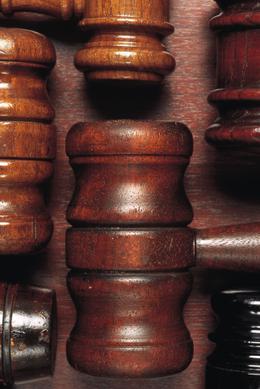Stop lawsuits brought to muzzle your freedom of speech
by Stewart D. Jenkins on 10/10/13
The Anti-SLAPP motion. CCP § 425.16.
Each of us grows up in the United States knowing that engraved on our DNA is an inalienable right to speak, publish, and participate in local, state and national government. This is much more than voting, writing a letter to the editor or commenting on an internet newspaper article. So many aspects of citizen involvement are interwoven into the basic idea of Freedom of Speech, Press, Assembly and Petition that many pages would be needed just to catalog how it affects every aspect of American life. From running for office to reporting a crime, it forms the basic fabric tying our democratic-republic together.
But California law contains a powerful antidote. In 1992 the legislature found that there had been “a disturbing increase in lawsuits brought primarily to chill the valid exercise of the constitutional rights of freedom of speech” and petition and “that it is in the public interest to encourage continued participation in matters of public significance, and that this participation should not be chilled through abuse of the judicial process.” In doing so California enacted Civil Code of Procedure § 425.16 authorizing someone victimized by a SLAPP suit to immediately ask the court to throw the case out because it stems from an “act of [of the defendant] in furtherance of the [defendant]’s right of petition or free speech under the United States Constitution or the California Constitution in connection with a public issue.” This statute protects statements made at official meetings, to administrative agencies, at court, and reports to law enforcement. It protects statements made in any public forum about an issue of public interest. And it protects “any other conduct” furthering your exercise “of free speech in connection with a public issue or an issue of public interest.” BUT, the motion is not self-actuating. The person sued must bring the motion within 60 days of being served with the complaint (so don’t delay finding a lawyer to help you with the motion or your chance to bring it will be lost). Hearing on an Anti-SLAPP motion is also very quick, usually less than 30 days after the motion is filed. These are fast paced defenses. Success is dependent on presenting factual evidence that the suit arises from an act of free speech, press, or petition in connection with a public issue. And succeeding in the Anti-SLAPP motion also depends on undercutting several exceptions allowing plaintiffs to preserve the lawsuit in particular instances. To save defendants from expense and delay, there is an automatic stay in the statute against plaintiffs taking depositions (or other discovery) while the motion is pending. Exceptions to the discovery stay, and defenses of the stay, must be carefully and zealously addressed in these expedited motions to strike.
Anti-SLAPP motions are one of the best tools to protect your Constitutional rights. They are professionally rewarding for Constitutional lawyers. But they are not simple, not the right tool in every free speech case, and should be brought by experienced attorneys. Happily the Legislature has made it easier for you to get help defending your freedoms. To motivate experienced lawyers to protect your rights to free speech, press and petition rights the Legislature mandated that courts shift “the financial burden of defending against so-called SLAPP actions on the party abusing the judicial system.” See Ketchum v. Moses (2001) 24 Cal.4th 1122, at 1136. If you win your Anti-SLAPP motion, "Absent special circumstances rendering the award unjust, an attorney fee award should ordinarily include compensation for all the hours reasonably spent …." Ketchum, above, 24 Cal. 4th 1122, 1133. In short, California’s Anti-SLAPP motion is designed to dissuade the powerful from SLAPPing journalists, whistleblowers, and ordinary citizens with lawsuits to muzzle their freedom of speech, press, or petition by making those who abuse the court system pay legal fees and costs for the journalists’, whistleblowers’, or citizens’.

